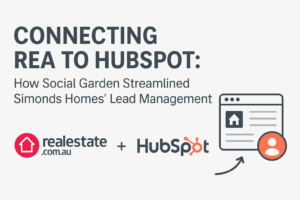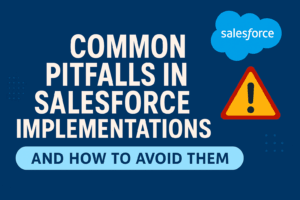BLOG
How to Tackle Data Privacy in Digital Marketing
Online data privacy has been a hot topic ever since the EU introduced its General Data Protection Regulation (EU GDPR) and tech giants around the world started improving their own data practices.
Now that Australia is following suit with its own data privacy laws and reforms, it’s time for digital marketers down under to adapt to the new landscape.
With consumers looking to trust the brands they buy from more than ever, we’ll show how these changes can present a new and exciting opportunity to build customer loyalty and retention for the long term.
What is data privacy?
To understand what’s going on in the global data privacy upheaval, you have to understand what counts as personal information in 2022.
Personal information that’s harvested for marketing purposes includes:
- Contact information
name, address, phone number, email address. - Identifiable details
date of birth, driver’s licence number, IP address. - User behaviour
Website visits, email opens, link clicks, abandoned carts. - Financial information
Credit card numbers, bank account numbers.
It’s this sort of sensitive information that has been collected from users for years, without much in the way of regulation or protection.
This is why users and governments alike are growing their expectations around data privacy in business.
The role of data privacy in marketing
Online user data has been the bread-and-butter of digital marketing ever since the dawn of targeted campaigns.
We use it in everything from advertising to emails, personalising a user’s experience so that it is relevant, engaging and seamless.
But while users expect this personalised online experience, they also get frustrated when lines are crossed and they find themselves receiving messages based on information they don’t remember agreeing to share.
Digital marketers now need to toe a delicate line that respects user privacy while providing that tailored digital experience.
Privacy issues in digital marketing
Aside from those headline-making data breaches such as the Cambridge Analytica scandal where user data was co-opted for an election campaign, just about everyone knows the feeling of having their online privacy compromised.
If you’ve ever received an email from a brand you don’t remember giving your address to, you’ve probably had your data palmed off from one party to another.
It’s this sort of behaviour that frustrates people and diminishes trust in the brands who handle data in dubious ways.
These trends are increasingly backed by research, such as Deloitte’s recent findings that Australian customers want more choice and control in how their data is collected and used.
Now it’s time for brands and marketers to step up to the task of improving data privacy in business.
How do privacy laws affect marketing?
Australia is following in the EU’s footsteps, implementing similar laws concerning data privacy in business.
The Australian Privacy Act will soon be revised with important changes to help empower consumers and hold companies accountable for data collection.
Here are some of the key Australian Privacy Act changes to look out for:
- Personal data will be regulated
The definition of personal information will become clearer and more encompassing so companies can’t get away with harvesting sensitive information without users’ informed consent. - Data-related activities will become fair and reasonable
Brands have been getting away with a lot when it comes to data. Stipulating that usage is “fair and reasonable” gives less wiggle room for brands to justify any dodgy dealings. - Privacy policies will become accessible
There’s a reason most of us don’t read privacy policies—and it’s not because we don’t want to know what they are! Those long and inscrutable policies will become digestible plain English, with “privacy hubs” and “data portals” taking the stage. - Consent will become explicit
For too long, “consent” to online marketing communications has involved not unticking boxes. All of that will change with regulation and the threat of fines forcing companies to ask for permission properly.
These exciting changes are being rejoined by an Online Privacy Bill that could put even more pressure on companies to develop ethical privacy practices.
So too are big brands taking the lead in transforming their own data privacy practices, such as Apple’s tracking blocker and Google Play’s Safety area.
It’s all about trust
Given that digital marketers have relied on user data for so much of their online advertising campaigns and inbound marketing, 2022 will present its share of challenges.
But far from being worried, marketers can get excited about this opportunity to generate customer trust—much more valuable than data.
With 70% of people saying that they value trust in brands more than ever before, implementing transparent and ethical data privacy practices can only work in a brand’s favour. And using the data you do collect in ways that provide value to the consumer? Well that’s the cherry on top.













